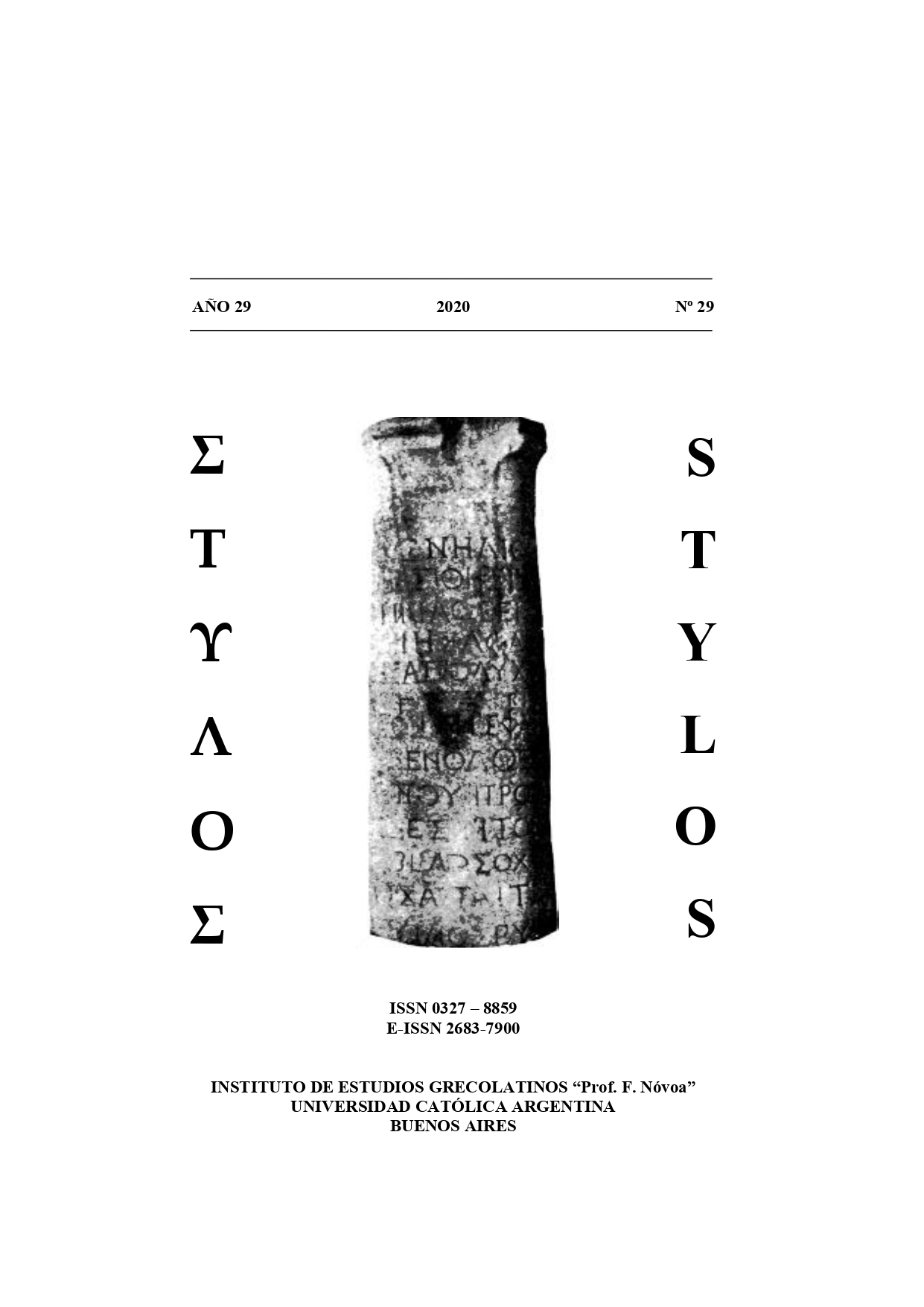ΦΙΛ- NAMES AS CHARACTER DISPOSITION
Keywords:
Platão, philía, nomes em phil-, philosophía, disposição.Abstract
A língua grega antiga foi outrora viva, com um uso criativo dos termos e a livre formação de neologismos. Desde os tempos Micênicos, o prefixo φιλ- foi empregado para produzir novas palavras: nomes próprios e comuns, adjetivos e verbos, como Filipe, filantropia, filarmônica e filosofar. Esse artigo começa delineando a discussão contemporânea sobre esse grupo de palavras, que localiza Platão como um divisor de águas no desenvolvimento do seu sentido. A seguir ele trata brevemente do dito “amor platônico” segundo a suposta transposição linguística que ele teria operado no sentido do prefixo φιλ-. A terceira sessão se centra na justificativa platônica do uso e da formação dos nomes emφιλ- na República para concluir que ela é compatível com o sentido tradicional. Eu mostro que esses termos não são nomes de controle normativo, referindo-se a “pretenciosos”, e que tampouco eles designam uma nostalgia em relação a um objeto inalcançável. Eu concluo que nomes em φιλ- sempre denotaram um tipo de obsessão e que a análise de Platão esclarece a sua lógica, além de acrescentar uma teoria psicológica para explicar o seu referente comum, qual seja, uma disposição de caráter específica.
Downloads
References
ARAÚJO, C., “Eros and communitarianism in Plato's Symposium”. In: BRISSON, L. and RENAUD, O. (eds.) Erotique et Politique chez Platon. Sankt Augustin: Academia Verlag, 2017, 231-242.
BURKERT, W., “Platon oder Pyhtagoras: zum Ursprung des Wortes ‘Philosophie’”. Hermes, 1960, 88, 159-177.
BURKERT, W., “Platão ou Pitágoras: sobre a origem do termo ‘filosofia’”. Translated by Carolina Araújo. Kleos, 2014, 18, 109-138.
CALAME, C., Eros na Grécia Antiga. Tradução de Isa Etel Kopelman. São Paulo: Perspectiva, 2013.
DENNISTON, J. D., Greek Particles. Oxford: Oxford University Press, 1954.
HALPERIN, D. M. “Platonic Eros and what men call love”. Ancient philosophy, 1985. 5: 161-204.
KAHN, C., “Plato’s Theory of Desire”. Review of Metaphysics, 1987. 41: 77-103.
KONSTAN, D., Friendship in the Classical World. Cambridge: Cambridge University Press, 1997.
LANDFESTER, M., Das griechische Nomen “Philos” und seine Ableitunges. Hildesheim: Geog Olms, 1966.
MOORE, C., Calling Philosophers names: on the origin of a discipline. Princeton: Princeton University Press, 2020.
NUSSBAUM, M., The Fragility of the Goodness: Luck and Ethics in Greek Tragedy and Philosophy. Cambridge: Cambridge University Press, 1986.
SCOTT, D., “Eros, philosophy and tyranny”, 136-153. In: Scott, D. Maieusis: Essays in Ancient Philosophy in honour of Myles Burnyeat. Oxford: Oxford University Press, 2007.
Downloads
Published
How to Cite
Issue
Section
License






